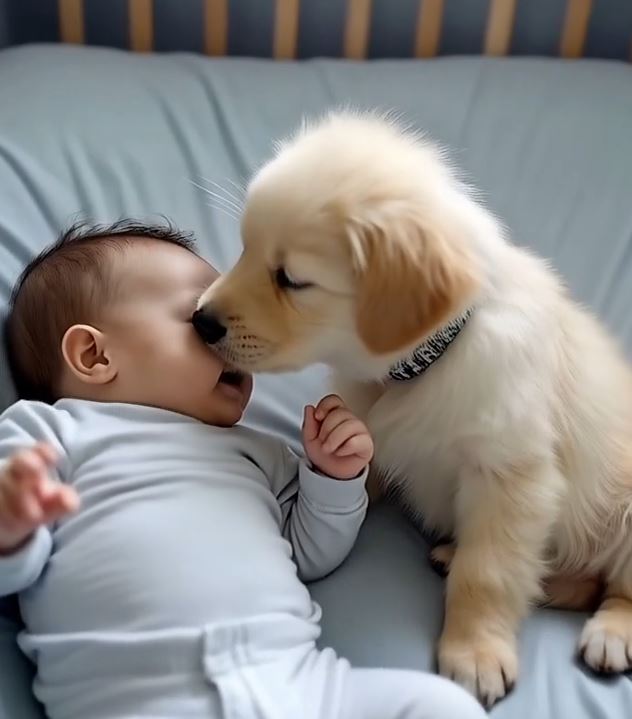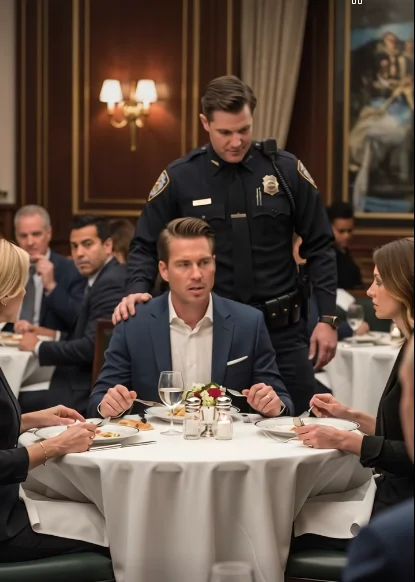The silence in the room was suffocating, like a thick fog pressing in from all sides. Outside, storm clouds sagged low, their dark folds scraping the windows as rain tapped like ghostly fingertips. Somewhere far off, a dog let out a bark—but within these walls, there was only stillness. No sound. No movement. No hope.
That’s when Max entered—a tiny golden retriever puppy, barely ten weeks old. His eyes shimmered with a strange knowing, far beyond his years. Without pause, he crossed the quiet room and stopped at the crib, where little Noah lay motionless.
Sarah whispered, “Max, don’t,” but he was already there. With a soft leap, Max nestled beside Noah, curling gently around the toddler’s fragile body. No one could have known it then, but that moment was the beginning of everything—the quiet spark that would set healing in motion.
For months, Sarah and her husband Emil had fought to understand their son’s rare neurological condition. At just 18 months old, Noah had stopped smiling, stopped responding. Doctors warned them he might never walk or speak. But deep in her heart, Sarah held onto something—small flickers in his expression, brief hints that he was still in there, somewhere.
It was Sarah’s sister who had first suggested the puppy. The last golden retriever left at the shelter. Max had stared at Sarah with soft, uncertain eyes, and something in her cracked open. She took him home, unsure what to expect.
From the moment he arrived, Max gravitated toward Noah. He slept by the crib instead of his bed, whined when the boy was taken from the room, and watched him constantly, as if waiting for something only he could sense.
Then came that stormy night—the night Max climbed into the crib for the first time.
The next morning, Sarah awoke to a sound that stopped her in her tracks: laughter. Faint, hoarse, but unmistakably Noah’s.
In the following days, Noah began reacting to Max’s presence—turning toward his bark, mimicking sounds, engaging not with his parents, but with the little pup who had chosen him. No medical test could explain it. There was no breakthrough therapy, no sudden miracle drug. Only Max, always there, quietly anchoring Noah to the world.
Six months passed. Noah began walking with support, speaking simple words, smiling every day. He called Max “Mack,” and the bond between them only grew stronger. The dog followed him everywhere, never more than a few steps away, like he had found his life’s purpose.
Experts might call it emotional-driven neurological stimulation. Sarah calls it something simpler: a miracle.
Max didn’t heal Noah. But he gave him a reason to reach, to move, to live again.
Sometimes, that’s all it takes—a loyal heart, a quiet presence, a spark of connection that science can’t quite explain.
Because often, it’s the quietest souls who carry the most powerful light back into our lives.




